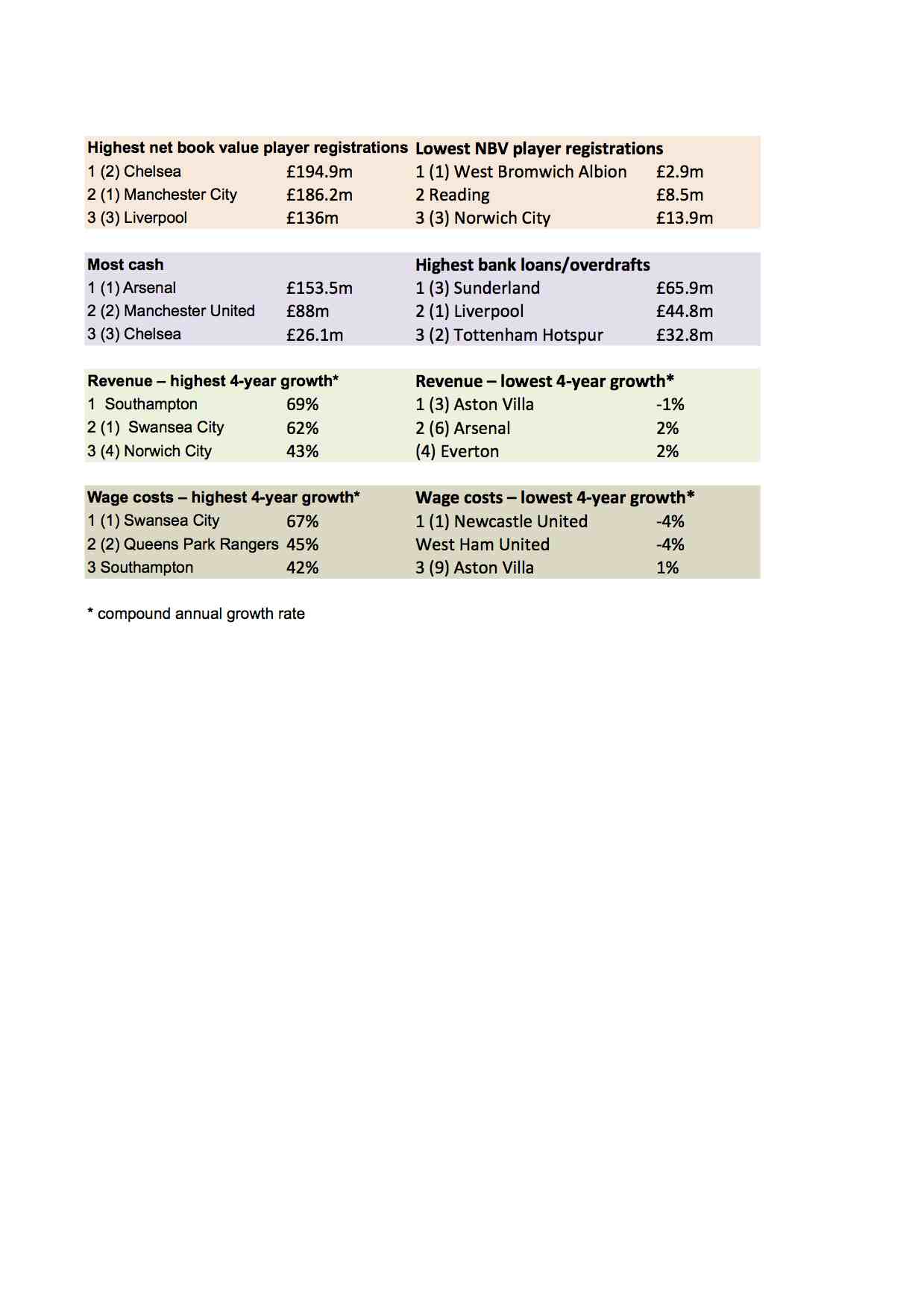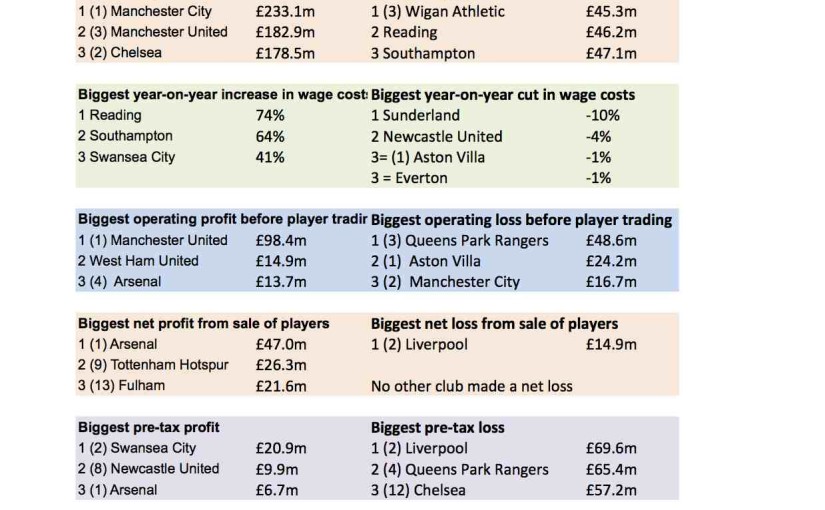With the start of a new Premier League season less than three weeks away, I have repeated last year’s exercise drawing on data from the Deloitte Annual Review of Football Finance to compile 26 top-three ‘mini-tables’. These rank the 20 English top-tier clubs in the 2012-13 season according to different financial parameters.
The tables reveal, I think, quite a number of points of interest, stemming as often from things that have not changed in relation to the previous year as from things that have: the clubs with the biggest operating losses in 2012-13 – Queens Park Rangers, Aston Villa and Manchester City – were the same trio as the previous year, albeit in a different order; Arsenal again achieved much the biggest net profit from the sale of players – and had the most cash; 2012-13 league champions Manchester United’s operating profit again dwarfed the figures achieved by any rival.
But who would have expected the clubs with the biggest pre-tax profits to be Capital One Cup-winners Swansea City, followed by Newcastle United, who ended a disappointing on-field campaign in 16th place?
Newcastle were also second in the ‘biggest year-on-year wage cut’ table, behind local rivals Sunderland, who endured an even worse season on the pitch, narrowly avoiding relegation in 17th spot. The 10 percent cut in wage costs could not, though, prevent the Wearside team from rising to the top of the ‘highest bank loans/overdrafts’ listing.
The magic of amortisation, meanwhile, meant that Liverpool were the one and only Premier League club to incur a net loss – of close to £15 million – on the sale of players. The next ‘worst’ performance in this category came from unglamorous Stoke City, with a net profit from player sales of £166,000.
Manchester United topped four of the 26 tables – including (by a vast margin) ‘biggest tax credit’ – Swansea topped three and six different clubs topped two.
FA Cup-winners Wigan Athletic had both the least revenue and the lowest wage costs.
The rankings are based on the clubs’ performance over the financial year ending between May and July 2013, so they do not reflect the 2013-14 season. Where appropriate, the previous year’s ranking is given in brackets.
David Owen worked for 20 years for the Financial Times in the United States, Canada, France and the UK. He ended his FT career as sports editor after the 2006 World Cup and is now freelancing, including covering the 2008 Beijing Olympics, the 2010 World Cup and London 2012. Owen’s Twitter feed can be accessed at www.twitter.com/dodo938.


